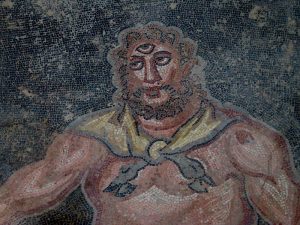THE SUPERSTITION AND THE RELIGION
2 min read
How strong is the influence of superstition within religious concepts?
The etymology of the word superstition (from the Latin superstitio-onis) refers to something that has to be placed above facts and human knowledge. For this reason, the superstition is inevitably linked to religion. Indeed, by definition, superstition is born from the will to satisfy needs that are in contrast with the dominant rituals. In most cases, they are a residual of pre-existing religions. In gesture of some rituals it is clear that they no longer have any proper religious significance.
The result of this repulsion from official religion towards superstition brought to the asimilation of these “pagan” gestures. Christianity is a perfect example of this process, considering that the great majority of feast days is celebrated in conjunction with ancient propitiatory rites.
For the Church, parts of the superstition are also divination and magic.

The different conceptions of superstition.
On the other side of the reference dominant religion, superstitions can arise from an animistic idea of the world (according to which magical entities in the form of spirits, demons, genies, elves, fairies and so on, would intervene to lead the fate and in the presence of which a certain behaviour must always be shown), or from a magical idea. Emblem of this second vision are spells, propitiatory rites, the attribution of supernatural abilities and particular talents (soothsayers, witches, etc.).

Superstition. To the second conception, other superstitious rites are ascribed too, that are all those rites “that have the scope of rejecting negative influences attributed to situations, the environment or even to individuals, to protect oneself from which, are used rituals, prayers, magical formulas, or amulets.” The realization of these rites is often linked to one or more parts of one’s body, that are named or reproduced. These, however, are characterized by a high ambiguous value, that makes them bearers of beneficial and apotropaic powers (such as that of rejecting the evil, of protection) and negative valences, such as the symbol of the eye in various religions.

Dottoressa triennale in Lingue per il Commercio. Ciò che più mi appassiona è lo studio di culture diverse dalla mia, nella consapevolezza che ciò possa portare ad una crescita personale. Sono convinta che tutte le arti e le singole culture debbano essere esaltate e valorizzate nella giusta misura







